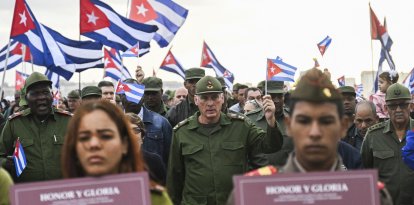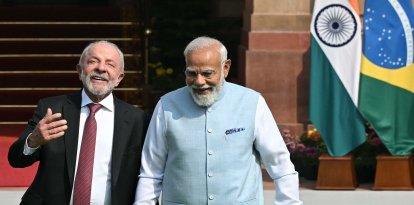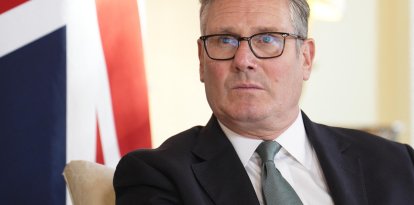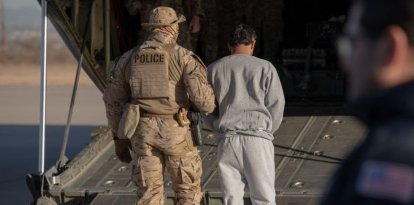Bernardo Arévalo takes office as president of Guatemala
Arévalo was sworn in after a months-long legal battle and several hours of tension in Parliament.
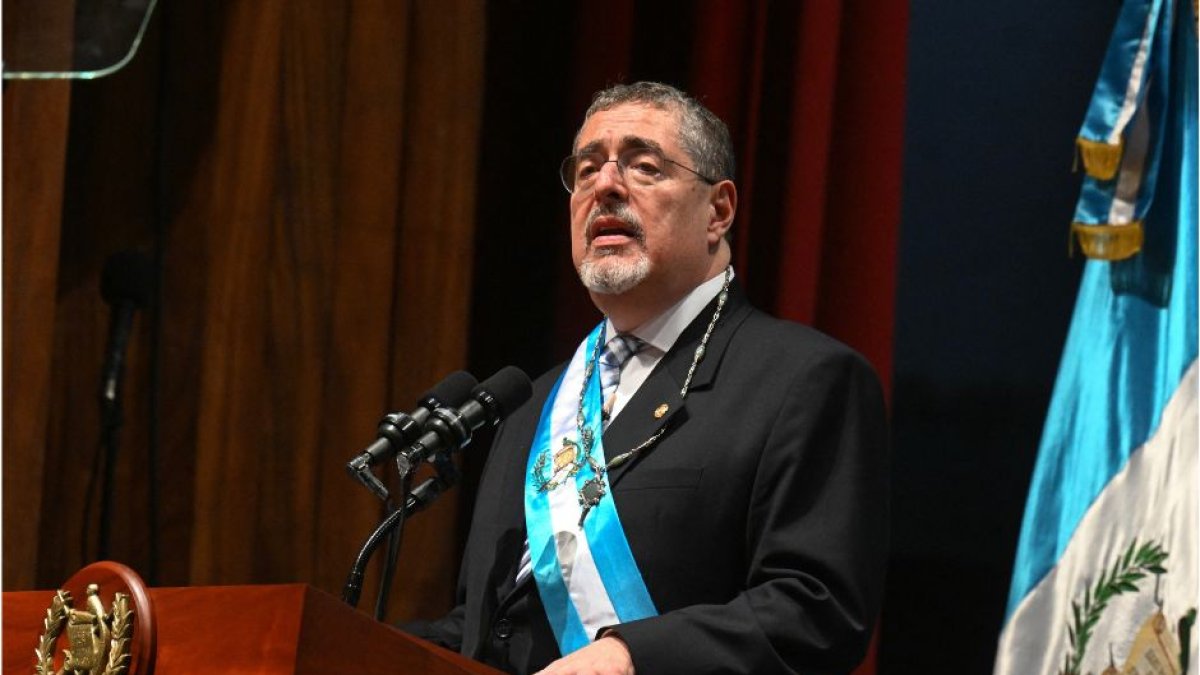
Bernardo Arévalo
The social democrat Bernardo Arévalo finally took office as the president of Guatemala in the early hours of Monday, more than nine hours behind schedule and after several weeks of uncertainty. A few minutes after midnight, the 65-year-old sociologist was sworn in as president for a four-year term at the National Theater, in Guatemala City.
"Yes, I swear," he said with his left hand on the constitution and his right hand raised, when the head of the new Congress, Samuel Pérez, swore him in, according to AFP. The ceremony was delayed on an unprecedented parliamentary day in which the outgoing deputies and those of the new legislature engaged in debates for and against the minority group of the new president.
Guatemala experienced several hours of tension this Sunday after Congress could not initially start the legislative session to elect new leaders.
Theoretically, every four years, Guatemala elects leaders. Congress determines its board of directors at a legislative session, including the president of the chamber, who is the one who participates in the entire presidential investiture. Normally, these steps are carried out without major problems but this time was different.
In addition to Arévalo and Karin Herrera (his running mate), the elected deputies of the Semilla Movement, the president's party, also had to take the oath. However, the party has been immersed in various judicial battles for months by the Guatemalan Public Ministry and the electoral authorities who have been trying to suspend the political group. They claim there were irregularities in the party registration process and after numerous accusations of electoral fraud against the Semilla Movement and the presidential election.
These judicial obstacles are considered by Arévalo and part of the international community as an attempted coup d'état by his political adversaries. However, the deputies of the Semilla Movement can assume their functions as independents, after the Constitutional Court, the highest Guatemalan judicial instance, decided not to protect Semilla and lift a momentary suspension on the party, according to the local media outlet República.
This delay in starting the legislative session, which occurred amid months of internal tensions in the country, caused hundreds of citizens to mobilize towards the Public Ministry and Congress, leading to confrontation with the forces of order.
Likewise, it also generated the aggressive emergence into the Congress of the Semilla Movement deputies, who claimed there were irregularities in the way the election of the legislative authorities was carried out.
Regarding all the controversy, the incoming president, Arévalo, spoke on his account on X (Twitter) asking Congress to respect the democratic process: “Deputies have the responsibility to respect the will of voters expressed at the polls. An attempt is being made to violate democracy with illegalities, trifles and abuses of power. The Guatemalan people and the international community are watching.”
The uncertainty surrounding Arévalo's inauguration caused the representatives of the United States, the European Union, the OAS and Latin American presidents, present in Guatemala, to urge Congress to comply with the will expressed by Guatemalans at the polls.
“We call on Congress to comply with its constitutional mandate to hand over power, as the constitution demands today to President-elect Bernardo Arévalo,” said OAS Secretary Luis Almagro.
Per the constitution of Guatemala, as of 4:00 p.m. this Sunday, January 14, Bernardo Arévalo and Karin Herrera respectively became president and vice president of Guatemala. Finally, after the presidential oath, the inauguration became official.
Biden congratulates Arévalo
Meanwhile, U.S. President Joe Biden congratulated his new Guatemalan counterpart, Bernardo Arévalo. He said the inauguration of the president is a historic testament to the shared commitment to democracy and the will of the people.
" In the months and years ahead, I look forward to continuing the strong partnership between our nations as we advance human rights, strengthen civilian security, combat corruption, address the root causes of migration, and expand economic opportunity for people across our hemisphere and around the world," said Biden, quoted in a White House statement.















